Ultrafiltration & Diafiltration (UF/DF)
Purify & concentrate biomolecules, exchange buffers, and more
Get everything ready for the next step
Ultrafiltration (UF) and diafiltration (DF) are critical for the development and manufacturing of biological therapeutics, such as proteins, antibodies, and nucleic acids as well as therapies that rely on viral or lipid nanoparticle (LNP) delivery. They can be used separately or in combination to get the target molecule ready for the next processing step by enabling sample cleanup, purification, concentration, buffer exchange, and desalting. While both involve the use of membrane filters, they operate in slightly different ways.
What’s the difference between ultrafiltration and diafiltration?
UF uses a semipermeable membrane to separate molecules based on size and is typically used for purification and concentration. DF is the process of adding back a different buffer or solvent after UF.
Here’s how they work:
Use the force
UF uses a semi-permeable membrane with active force applied to drive filtration. Typically, force is applied by centrifugation or pressure.
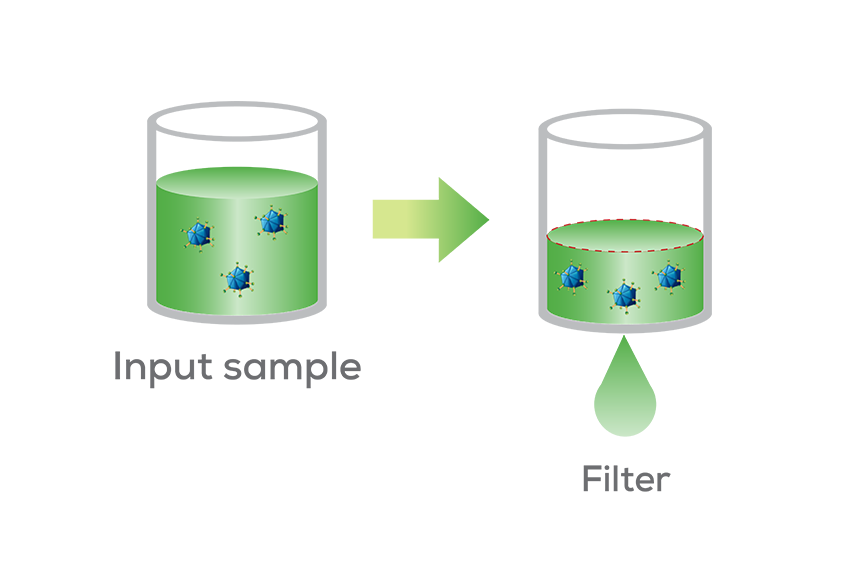
Size matters
The semi-permeable membrane retains larger target molecules while allowing smaller molecules to filter out. Regenerated cellulose (RC) is popular for gene therapy and biologics applications given its hydrophilic properties, low protein binding, and compatibility across a wide pH range.
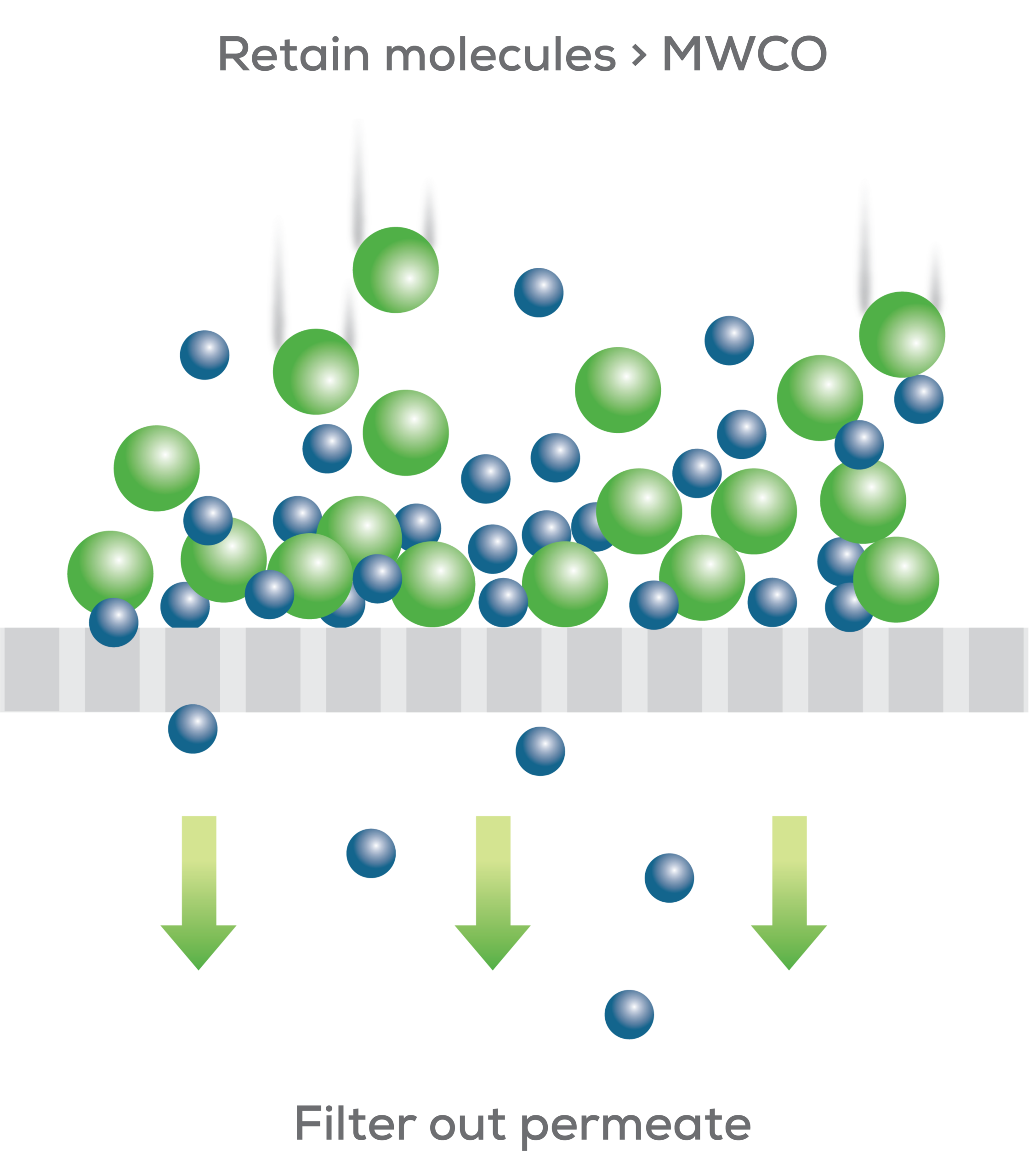
Exchange that buffer
DF enables buffer exchange by adding new buffer to the retentate. The buffer is replaced, and the sample is returned to the original volume. At this point the UF/DF cycle can be repeated until the sample reaches a targeted level of replacement with the new buffer.
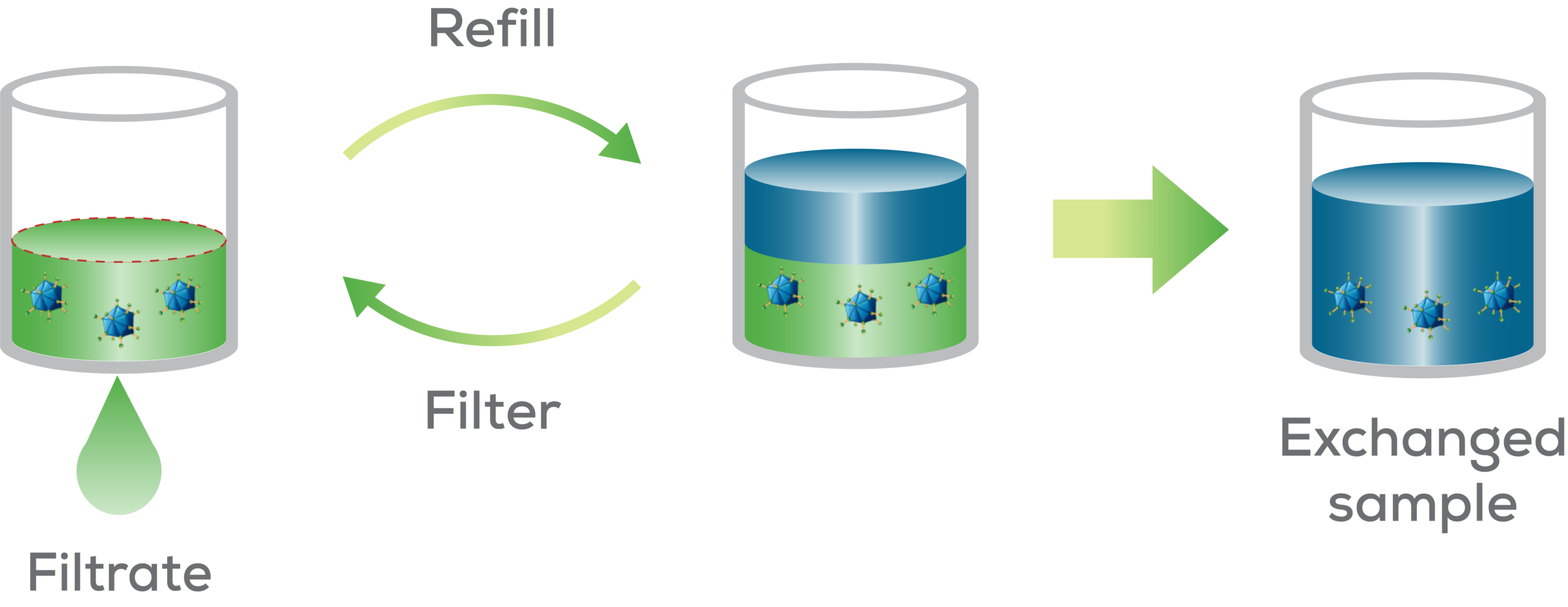
Unagi
Buffer exchange and concentration are two of the most annoying things you have to do before you can work with your sample. It takes forever, you physically have to be there and just when you think it’s done, you’re tweaking it again, even for a handful of samples. Unagi is the first completely hands-free benchtop buffer exchange solution that’s made to take this not-so-fun task off your plate — so you can be anywhere else instead of tied to your bench.
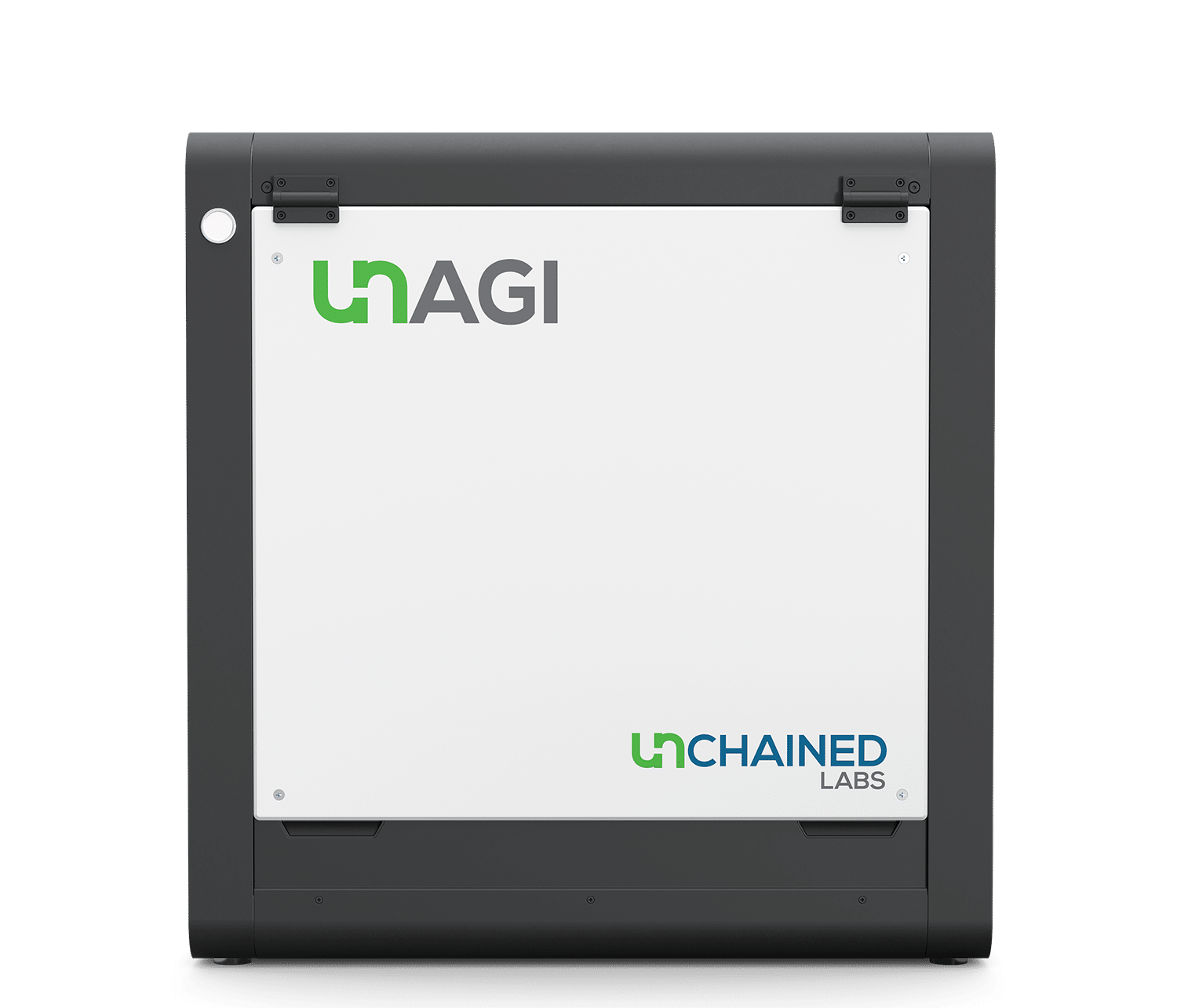
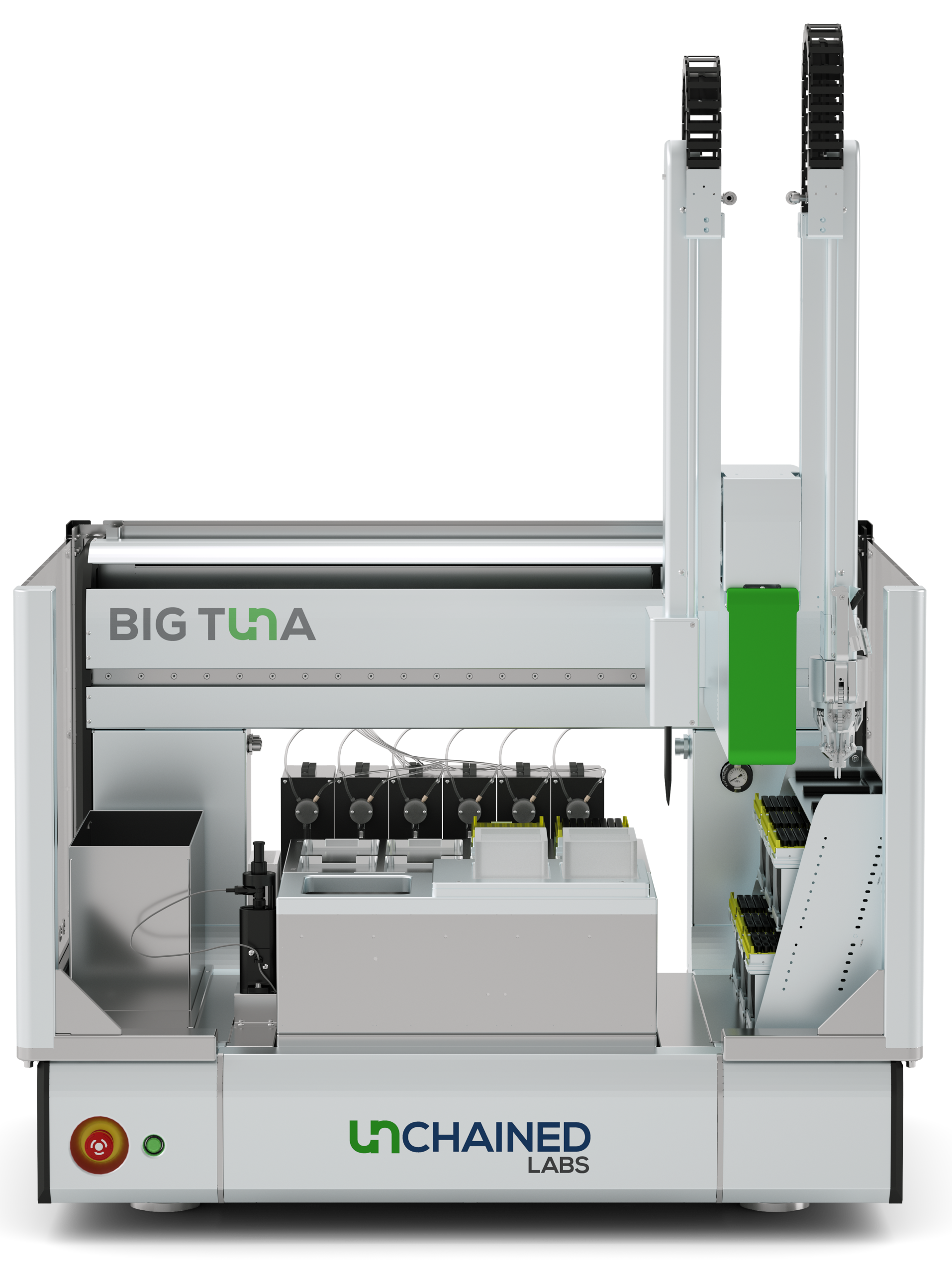
Big Tuna
Buffer exchange and sample concentration are the time consuming, hands-on chores you must deal with before all the things you really want to do. Big Tuna is a fully automated, plate-based buffer exchange platform that uses a modified UF/DF method and gentle mixing to buffer exchange, concentrate, and clean up proteins, nucleic acids, or gene therapy vectors like AAVs and LNPs. Skip the slow and manual ways of prepping samples to free yourself up for other critical work.
More info
Gene therapy and biologics scientists can now use the right tools for buffer exchange and sample concentration with platforms that free you up and deliver superior results. Have a question or ready to find out more?